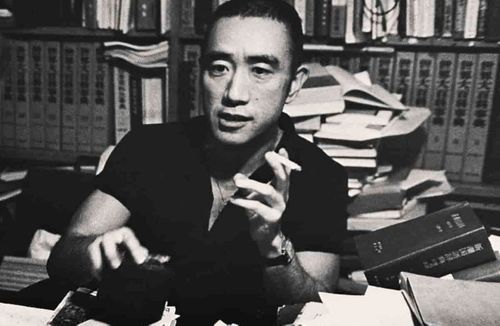A 14 year old psychopath and a sailor walk into a bar...
Jan 30, 2023 · 2 mins read
0
Share

Take a 14 year old boy. Give him a God complex and an Oedipus complex. Make him Freud's worst nightmare and Dostoevksy's fever dream (in a bad way). Do this and you get NOBURU, the main character of Mishima's disturbing classic Sailor who fell from grace with the sea (1963)👇
Save
Share
Noboru spits on conventional morality like Raskolnikov. He tortures + kills kittens with his school gang. They are "geniuses" seeking risk and adventure away from the banality of civilization. Noboru has high hopes from local sailor Ryuji who is sure to do something "terrific."
Save
Share
Ryuji too seeks a "Grand Cause" but finds only "squalor and boredom" in the sailor's life. He comes to believe the "world would have to topple" if he is to get a shot at greatness. Mishima writes: "They were consubstantial: glory and the capsized world. He longed for a storm."
Save
Share
Ryuji sleeps with Noboru's single mother, and sets in motion a chain of events that culminate in a sadistic fulfillment of his own vision. Noboru spies on them when they have sex, idealizes Ryuji, but also jots down "Charges Against Ryuji" in his diary for every tiny mistake.
Save
Share
WITH Noboru's mother, Ryuji starts to feel like a "piece in a jigsaw puzzle." As if he was "snugly in place in an anchored, amiable world." Ryuji thinks it is "time to realize that no specially tailored glory" is awaiting him. For Noboru, this is an unforgivable sin.
Save
Share
The philosophical heart of the novel is a monologue from the "chief" of Noboru's gang on the subject of fathers: "There is no such thing as a good father because the role itself is bad." Fathers are an embodiment of structure, society, systems - all anathema to true achievement.
Save
Share
Without revealing the end, I'll say that Ryuji gets his heart's desire in a twisted conclusion. Early in the story he realises that the fantasy he's chasing is the result of the "hyperbole of popular songs." But self-awareness does nothing. Man is condemned to live out his dream.
Save
Share
Noboru and his gang complain of the "world's great hollows" which they wish to fill with spectacular acts of cruelty. This will finally break the "endless chain of society's loathsome taboos." But their (lack of) imagination is as loathsome as the restrictions it rebels against.
Save
Share
Mishima's story is about the burden of the Dream Of Perfection. The masculine imperative throughout history has been to pitch an alternative to the limits and complacency of Nature - to impose one's design onto the default of the world. To do this well is the Task of Life
Save
Share
In Mishima's Godless world where self-proclaimed geniuses chase glory and perfection, Nietzsche's shadow looms large But why not become Andre Malraux, a Nietzschean Superman for good? Read about him in my two minute piece: Malraux Becomes The Ubermench.
Save
Share
0